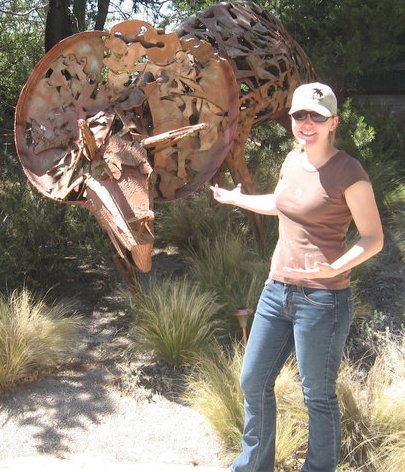Humans are animals; however, we have several characteristics that make us stand out as unique. Our large brains have allowed us to be able to do some pretty amazing things. Aside from being able to walk upright, solve problems, and be self aware, we also engage in fairly complex relationships. Those relationships are possible because of the complex ways in which we communicate: visually, verbally, and through writing.
I want to talk about science communication. Or rather, the lack there of. Communication is especially bad between scientists and non-scientists. The point of science is to answer questions and produce new information. It's rather ironic, then, that there is such poor communication of scientific ideas. Many scientists seem unwilling to ensure that their research is known and understood.
Before I go on, I know some of my more "sciency" friends might claim that the general public is unwilling to learn, or even listen to what scientists have to say. I agree, but only to a certain extent. I believe this is partially true, because scientists have allowed a stereotype about themselves to perpetuate, to a point where it is coming back to bite us in the butt. That stereotype is: scientists are cold, uncaring, arrogant people who can't be bothered to explain what they do. This is the point of view that exists, and it is largely the fault of scientists who are, in fact - cold, uncaring, arrogant people who can't be bothered to explain what they do to those people who are (in their own minds) too stupid to understand anyway.
Now I ask my fellow sciency people, would you want to LISTEN to a person with that kind of attitude? Of course not! Yet we expect the general public to just listen to us, even when we don't take the time to explain to them what we are up to in a way that is accessible. Then we lose our patience if they can't understand, in spite of the fact that a lot of what we do is confusing. This, my friends, is called a superiority complex. It is based on the false assumption that somehow we are smarter or better than "they" are. And, it is going to make it really difficult to get people to listen to us in the future when we have something really important to say (if you can imagine it being more difficult than it is already).
I know for a fact that a lot of scientists don't write well. I do a lot of reading, that comes with college and graduate school. Scientific papers are dense, in every definition of the word. This isn't always the fault of the author; limitations and requirements imposed by editors and journals often make it impossible to write something pleasant or intelligible to a non-expert. As a result, scientists learn to communicate well with others in their own specific area of interest, but they can't always communicate adequately with outsiders. This is a deficiency, and it poses a huge problem when trying to solve multifaceted problems that require interdisciplinary collaboration. This is compounded when the results of research have political or economic implications.
The simple fact remains: a lot of research funding comes from the government. Ultimately, that money comes from taxes. So in a sense, we are being paid by the general public to do what we do. Therefore, it benefits scientists to effectively communicate; not just with each other, but with everyone.If "they" don't understand what we do, "they" will stop paying us to do it.
We are facing many troubles: environmental, biological, and economical. And the people who can make meaningful policy, laws, and decisions are either not listening to us, or they don't understand. In reality, it's probably a little of both. We can spend a bunch of time and energy going back and forth, arguing about whose fault it is. We can ignore people who are perceived to be too "dumb" to know what's good for them. Or, we can take a proactive approach and commit ourselves to communicating more effectively. I'm not saying that we need to restructure the way in which we publish original research (although, one could argue, that might be a good thing). What I am saying is that scientists need to get outside of their individual bubbles, and interact with regular people. We need to reach out. We need to talk and write in a way that is accessible.
Even if you are a scientist who hates humanity, who thinks people are stupid. You should make an effort to give your wealth of knowledge to someone other than yourself, if only for the sake of getting things done.
Next semester I will be participating in a class that runs a biology blog. It will highlight research as well as other things going on in the department of Biology at UNM, as well as other biology related topics.
Matt and I also have plans for starting a science blog, with the explicit goal of making science accessible to the general public.
My plan is to connect those blogs to my PhD blog in some fashion, with the hopes of increasing outreach.
20 hours ago



No comments:
Post a Comment